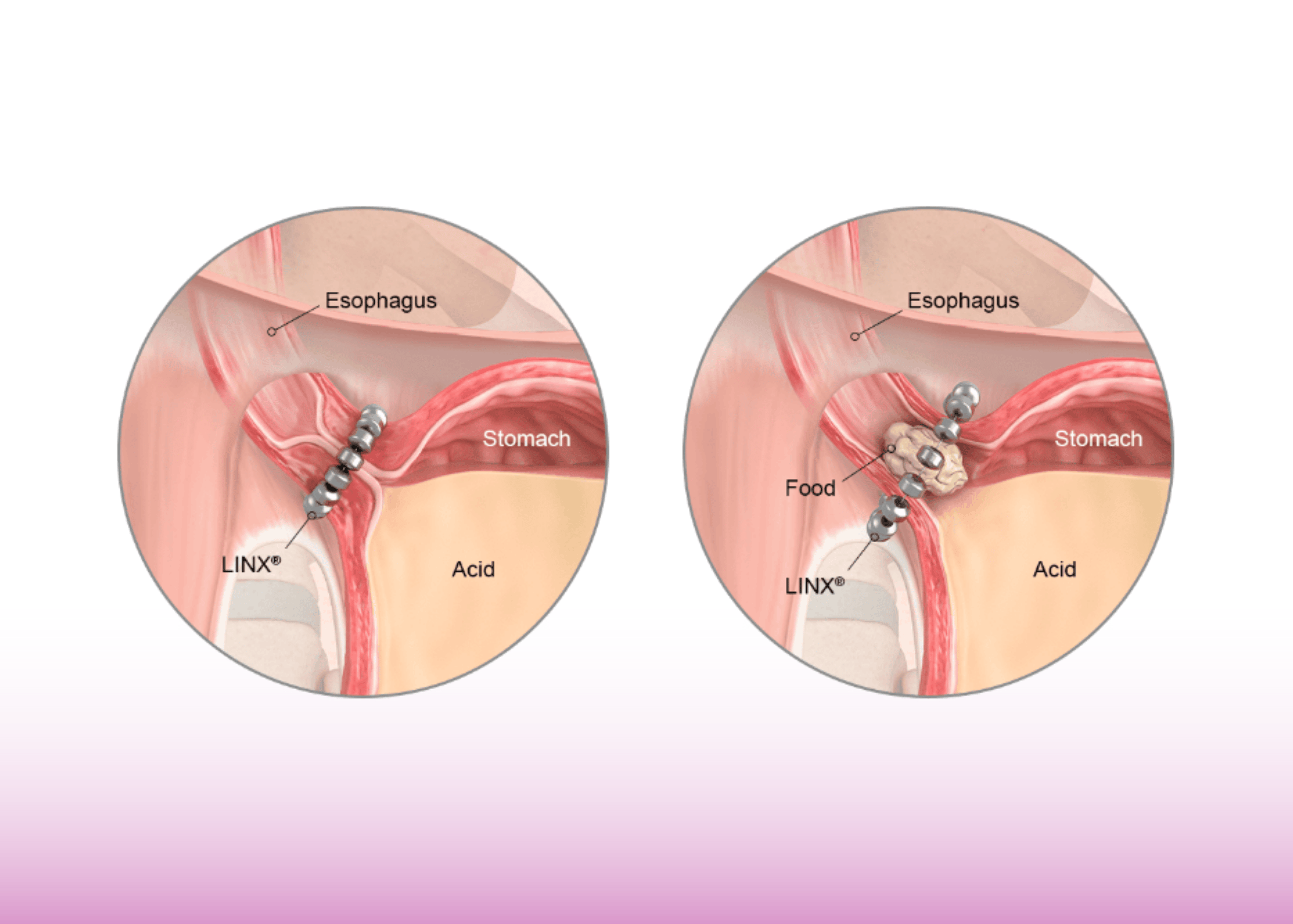Introduction
Burjeel Hospital Abu Dhabi has successfully performed a LINX® device implantation to treat severe gastroesophageal reflux disease (GERD) in a patient with previous bariatric surgery. This case highlights the challenges of managing GERD in post-bariatric surgery patients and demonstrates how innovative medical devices can provide effective symptom relief when traditional surgical approaches are not feasible.
Patient History
A 34-year-old male patient presented with a 4-5 year history of debilitating GERD symptoms, including longstanding heartburn, excessive burping, and dysphagia (difficulty swallowing). Despite previous treatment with proton pump inhibitors (PPIs), his symptoms remained uncontrolled. The patient had a significant surgical history, having undergone laparoscopic butterfly gastroplasty for obesity in 2017.
Diagnostic Workup
A comprehensive evaluation was conducted to assess the severity and physiological basis of the patient’s symptoms:
- Gastroscopy: The endoscopic examination revealed grade A esophagitis (mild inflammation of the esophageal lining) and a 3cm sliding hiatal hernia.
- pH Study: A 24-hour pH monitoring confirmed severe gastroesophageal reflux with a DeMeester score of 35 to 306 (normal value <14.72), indicating significant acid exposure in the esophagus. The study also demonstrated a strong correlation (93.9%) between reflux episodes and symptom occurrence.
These findings confirmed the diagnosis of severe GERD that was inadequately controlled with medical therapy, warranting surgical intervention.
Surgical Approach
Prof. Dr. Basil Ammori, Consultant in Laparoscopic, Bariatric, General, Gastrointestinal & Hepatobiliary Surgery at Burjeel Hospital Abu Dhabi, performed a laparoscopic hiatal hernia repair and LINX® sphincter-augmentation device placement. The procedure was performed as a day-case surgery with anesthesia provided by Dr. Samer Shouman Alkahwaty.
The LINX® device consists of a small, flexible band of interlinked titanium beads with magnetic cores. When placed around the lower esophageal sphincter (LES), it provides additional support to prevent reflux while still allowing food and liquid to pass into the stomach. This approach is particularly valuable in post-bariatric surgery patients where traditional anti-reflux procedures like fundoplication may not be anatomically possible.
Surgical Outcome
The procedure was completed successfully in just 51 minutes, with the patient recovering uneventfully and being discharged the same day. Follow-up evaluations at both 1 and 6 weeks post-surgery confirmed that the patient remained entirely symptom-free, indicating an excellent immediate clinical outcome.
Unique Challenges in Post-Bariatric GERD
This case highlights several important considerations in managing GERD after bariatric surgery:
- Limited Surgical Options: Traditional anti-reflux procedures such as fundoplication are often not feasible in post-bariatric patients due to the altered gastric anatomy.
- Higher Technical Complexity: Previous abdominal surgery can result in adhesions that increase the technical difficulty of subsequent procedures.
- Specialized Device Solution: The LINX® device provides an effective mechanical barrier to reflux while accommodating the modified gastrointestinal anatomy following bariatric surgery.
Risk Considerations
While generally safe and effective, LINX® device implantation carries specific considerations that patients should be aware of:
- Esophageal Erosion: Although rare (1-2%), the device can potentially erode into the esophagus over time.
- MRI Limitations: Patients with the LINX® device have restrictions regarding MRI procedures due to the magnetic components.
- Technical Expertise: The procedure requires specialized surgical skills and experience with the device, which is available at specialized centers like Burjeel Hospital.
Conclusion
This case demonstrates Burjeel Hospital Abu Dhabi’s capability to offer innovative solutions for complex gastroesophageal disorders, particularly in patients with previous bariatric surgery. The successful LINX® device implantation as a day-case procedure with excellent symptom resolution highlights the value of this approach for carefully selected patients with severe GERD who cannot undergo traditional anti-reflux procedures. Prof. Dr. Basil Ammori’s expertise in both bariatric and anti-reflux surgery provided the necessary skill set to achieve this excellent outcome in a challenging clinical scenario.


